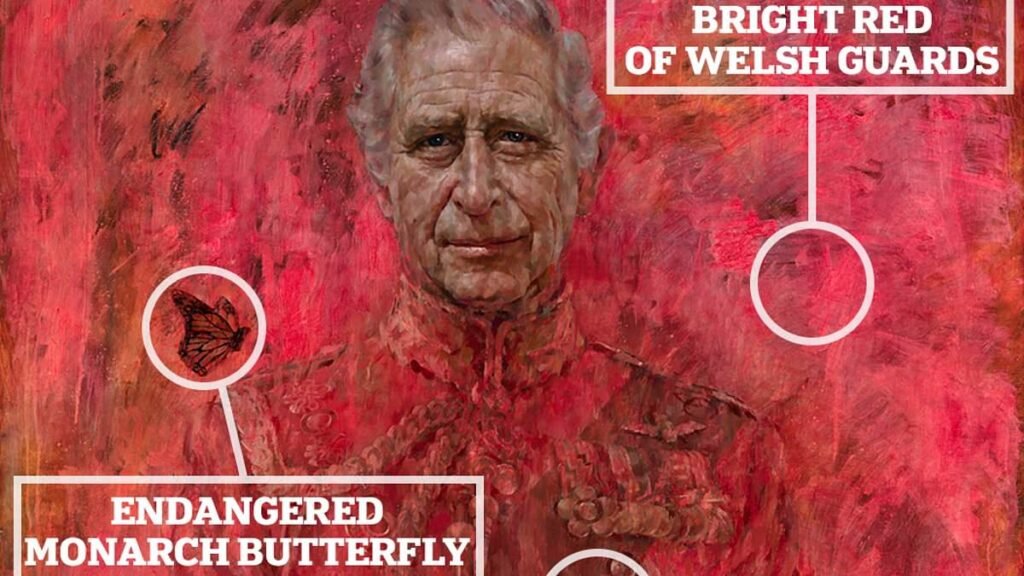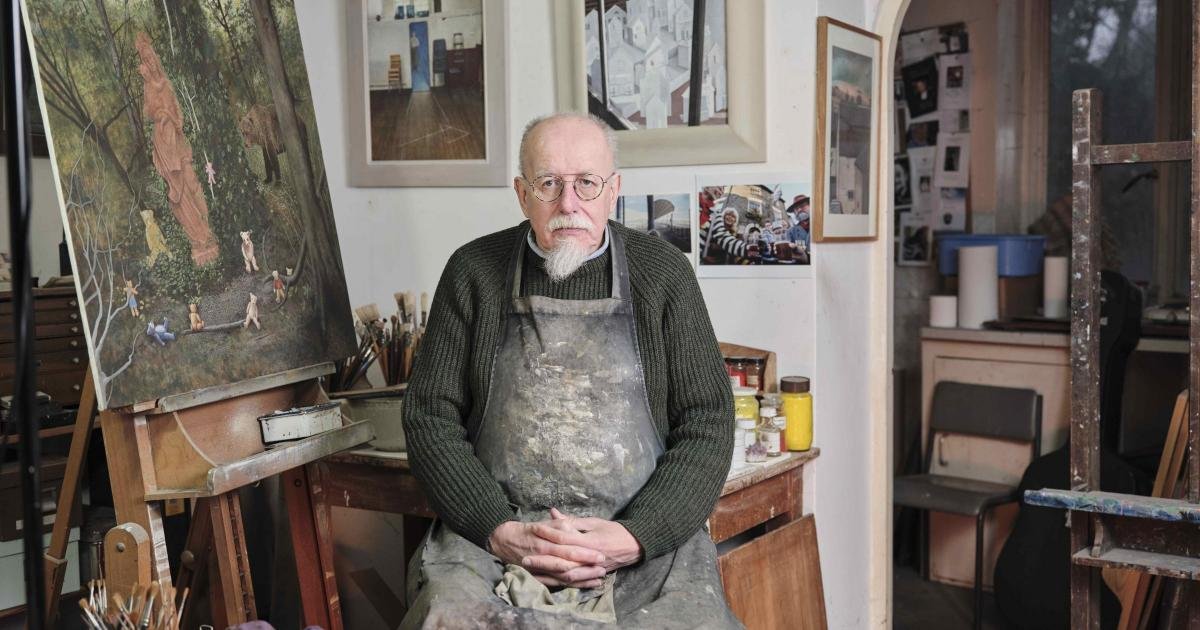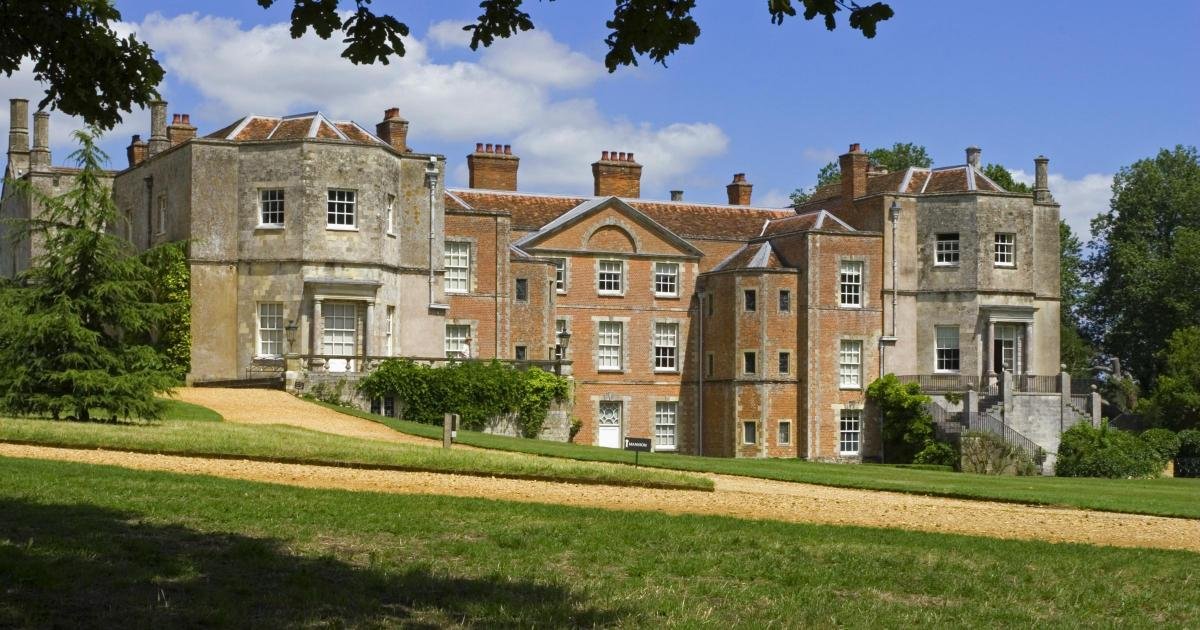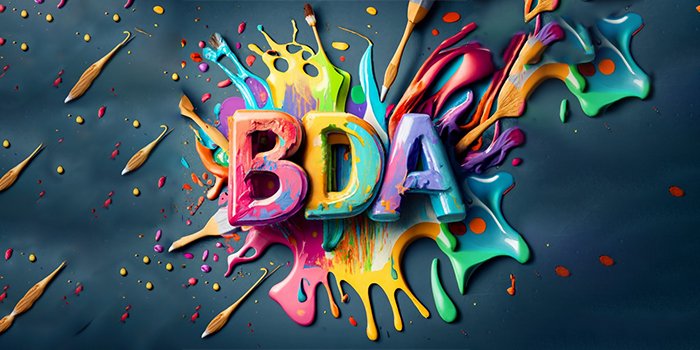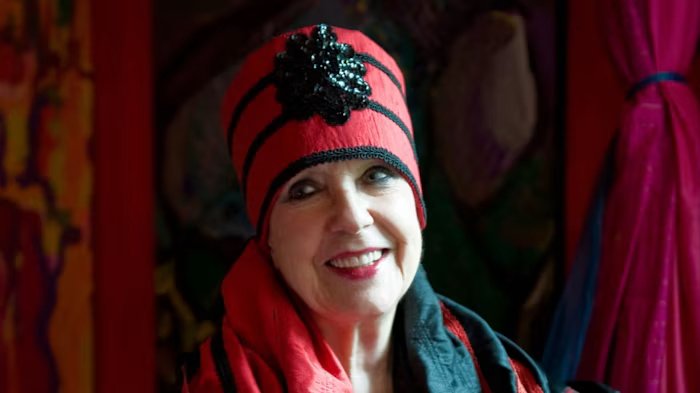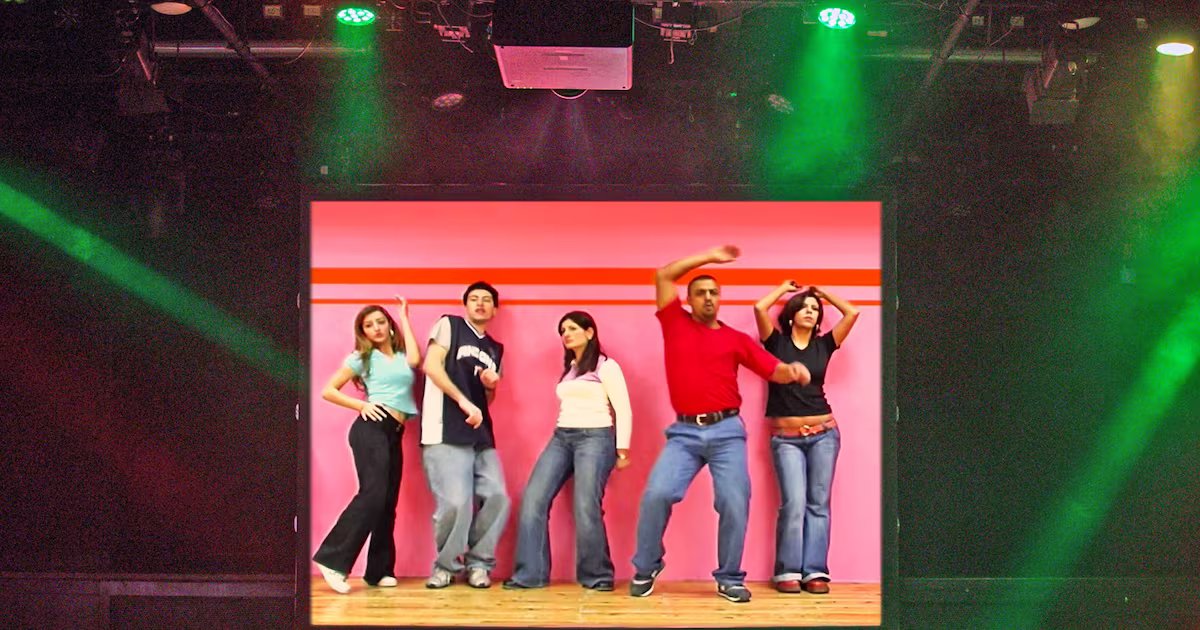- The 8.5ft-tall oil on canvas by Jonathan Yeo was unveiled at Buckingham Palace
- His Majesty is seen in his Welsh Guards uniform with a butterfly on his shoulder
King Charles‘ first portrait as a monarch has been unveiled, but experts have suggested that the artist has hidden deeper meaning in the key details.
The 8.5ft-tall oil on canvas by Jonathan Yeo was revealed to the public and the Royal family at a ceremony in Buckingham Palace today.
In the painting, the King can be seen standing in his Welsh Guards uniform with a sword in his hand and a butterfly on his shoulder, while the whole canvas is awash in a deep red colour.
Yeo has made no secret that he wanted to break from tradition for this sitting, and make this portrait more ‘dynamic and contemporary’.
That is why viewers can see some of the traditions upheld, such as the military outfit and the sword, but with a twist of modern in the striking red colour and the butterfly.
One of the most poignant details is the butterfly above the Monarch’s shoulder, Yeo alleges that its inclusion was actually the Kings’ idea, which came about when the two were discussing the story behind the portrait.
Click here to resize this module
‘I said, when schoolchildren are looking at this in 200 years and they’re looking at the who’s who of the monarchs, what clues can you give them?
‘He said ‘what about a butterfly landing on my shoulder?”.
Yeo added that ‘in history of art, the butterfly symbolises metamorphosis and rebirth’, which to him was perfect considering that Charles title had changed during the sitting.
‘When I started this project, His Majesty The King was still His Royal Highness The Prince of Wales and much like the butterfly I’ve painted hovering over his shoulder, this portrait has evolved as the subject’s role in our public life has transformed.
‘I do my best to capture the life experiences etched into any individual sitter’s face.’
The artwork was initially commissioned in 2020 to celebrate the then-Prince of Wales’s 50 years as a member of The Drapers’ Company.
The butterfly is also a reference to the King’s long held interest in the environment, causes ‘he has championed most of his life and certainly long before they became a mainstream conversation’.
Click here to resize this module
However, speaking to MailOnline Professor Geraldine Johnson, Head of the History of Art Department at Oxford University suggested that the inclusion of the insect may be a nod to the ‘endangered’ future of the monarchy.
‘According to Yeo, the butterfly was an offhand suggestion by the King. If that is correct, it may be thanks to Charles’s familiarity with half a millennium of British portraiture.
‘But it also undoubtedly reflects his lifelong passion for the natural world. One does wonder, however, whether it was the King or Yeo who made the decision to depict a Monarch Butterfly in particular.
‘While its name suggests royalty, its endangered status may unintentionally say as much about the King’s concerns about the future of the monarchy as about the natural world.’
She added that the butterfly ‘evokes the portraits of Elizabeth I, which feature insects, plants and animals embroidered on her gowns and crafted into elaborate pendants and brooches’.
The uniform of the Welsh Guards is understood to have inspired to red theme, Yeo says on his website that he chose to blur out the uniform and define the face to allow viewers a sense of connection with the Monarch.
Click here to resize this module
‘As a portrait artist, you get this unique opportunity to spend time with and get to know a subject, so I wanted to minimise the visual distractions and allow people to connect with the human being underneath.’
Prof Johnson added: ‘Red is an eye-catching colour that can’t easily be ignored. It is a colour we associate in everyday life with warning or prohibition—think of a stop sign.
‘But red also has historic associations with power, including through a long tradition of royal portraiture.
‘Napoleon, for example, was depicted on his imperial throne dressed in sumptuous red robes lined with ermine in an iconic portrait by Ingres, while Henry VIII was famously portrayed by Holbein wearing a crimson gown.
‘Queen Victoria likewise was often shown in official portraits wearing red velvet.’
Yeo previously produced commissions of Prince Philip, the late Duke of Edinburgh, Queen Camilla, Sir Tony Blair and Lord David Cameron.
The portrait will eventually hang in Drapers’ Hall, a City of London livery company and philanthropic institution.

